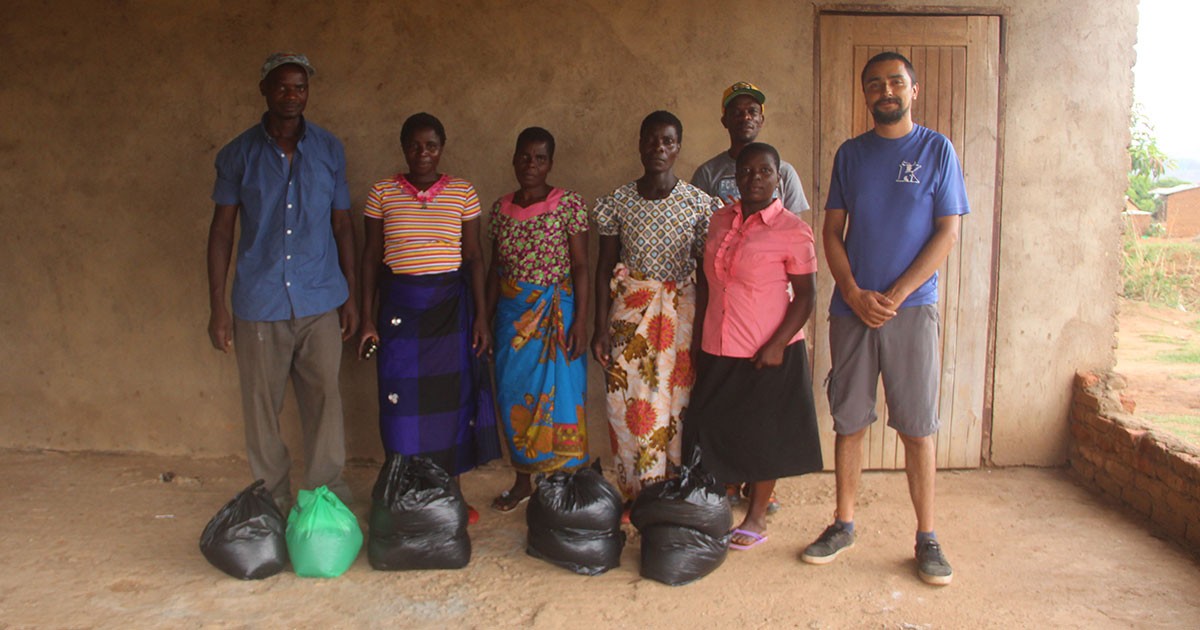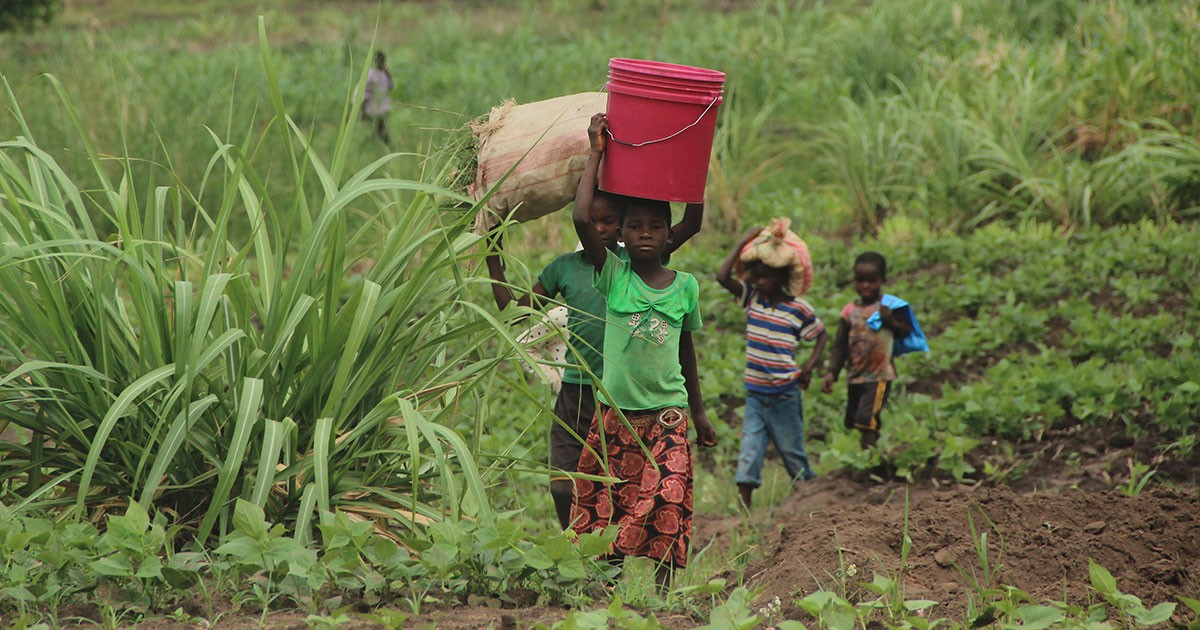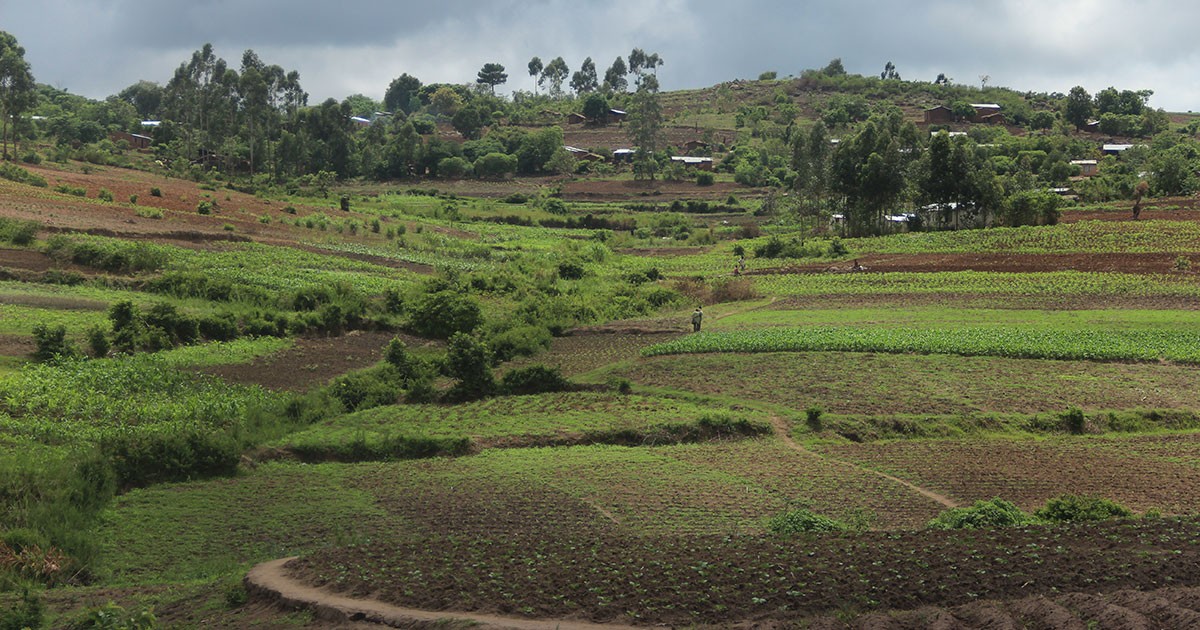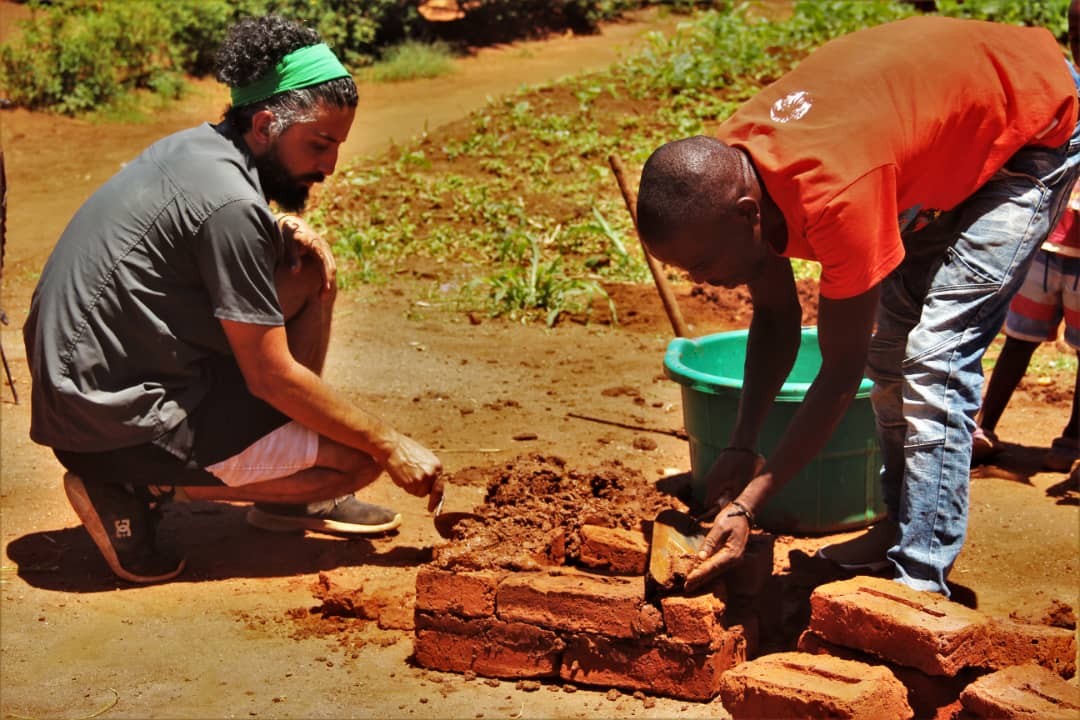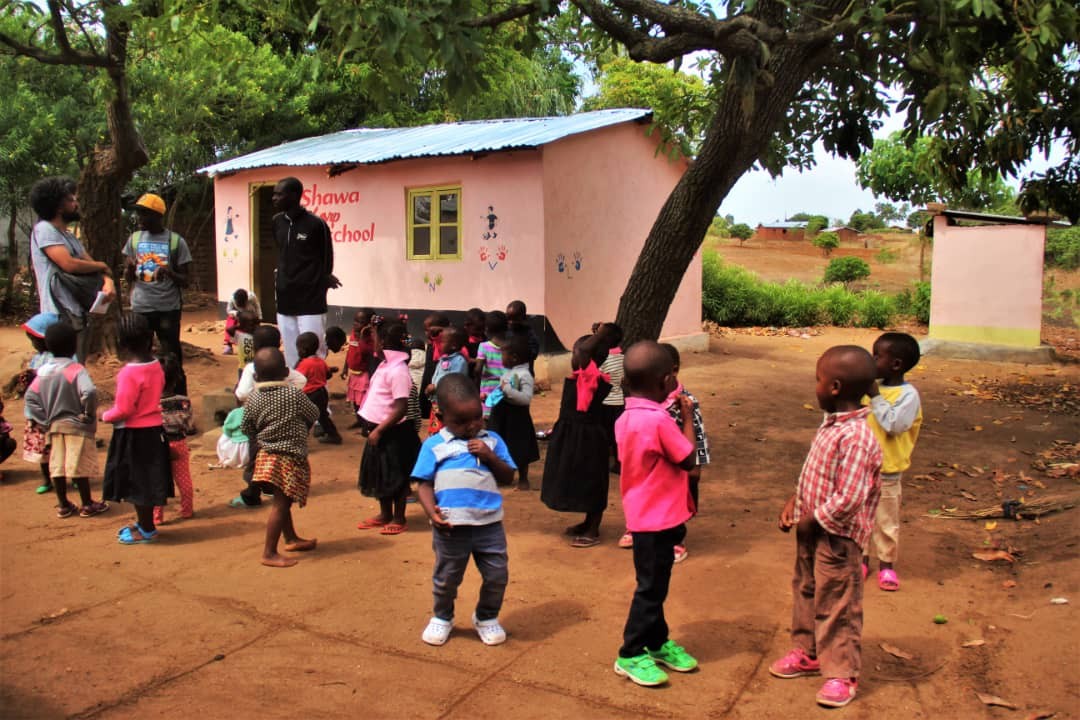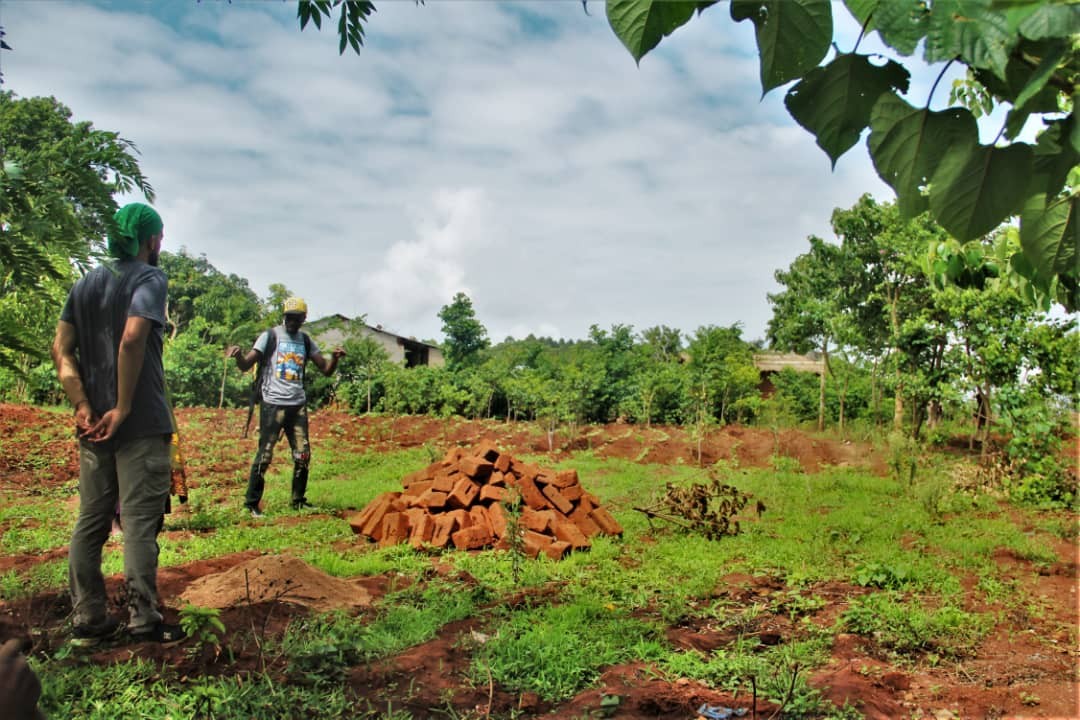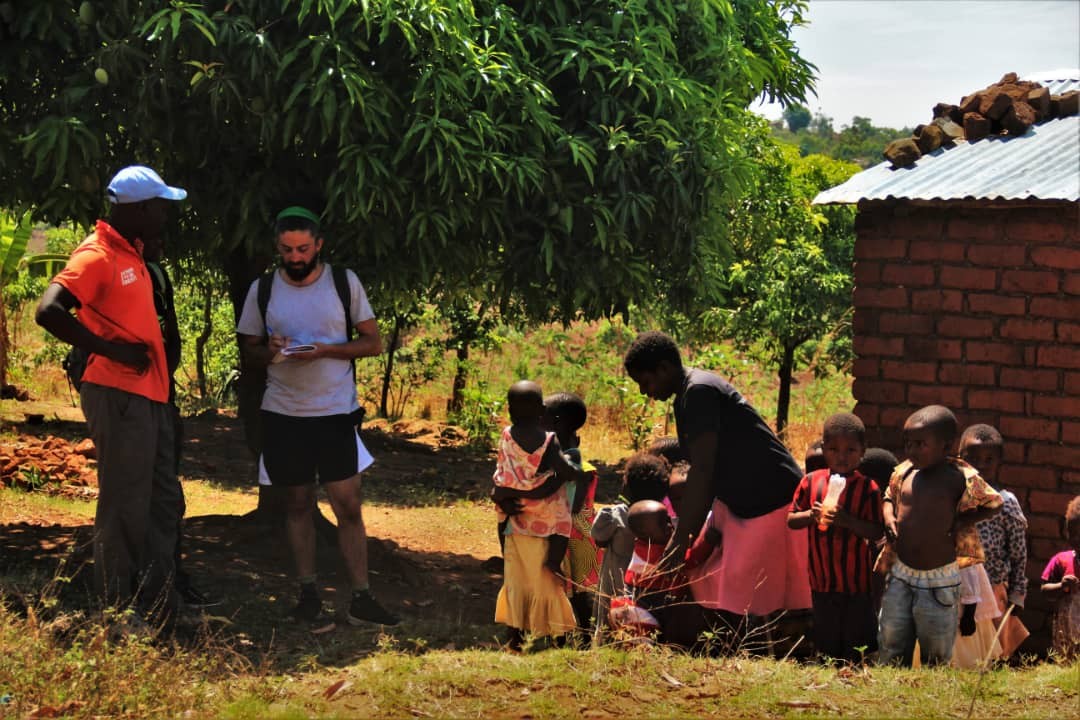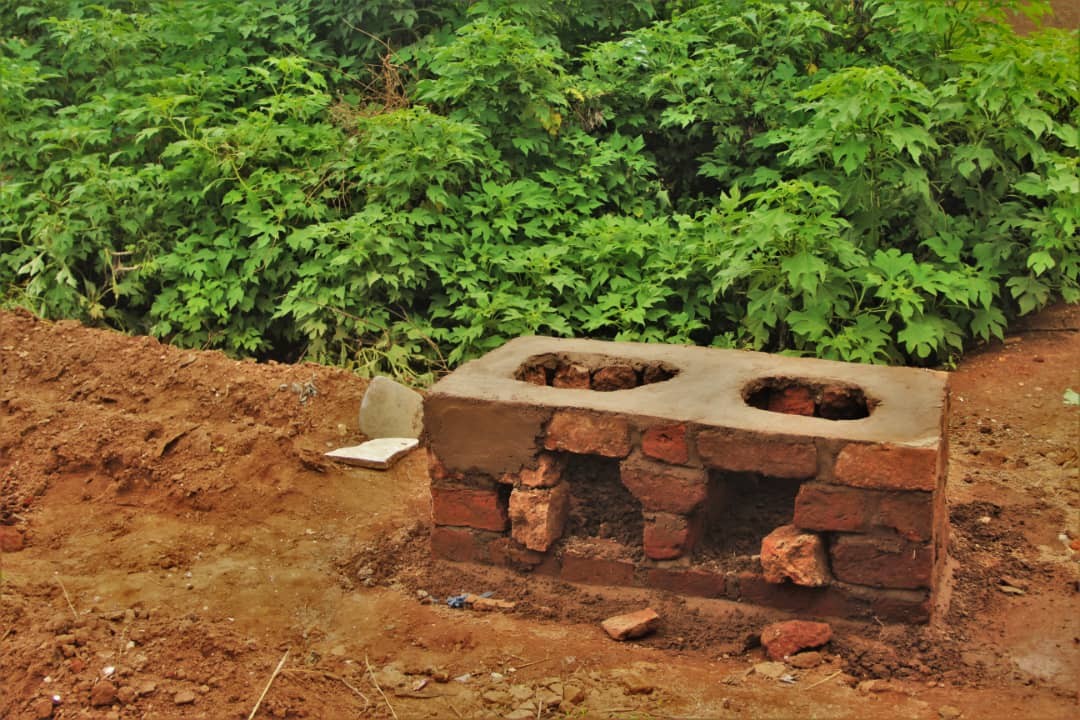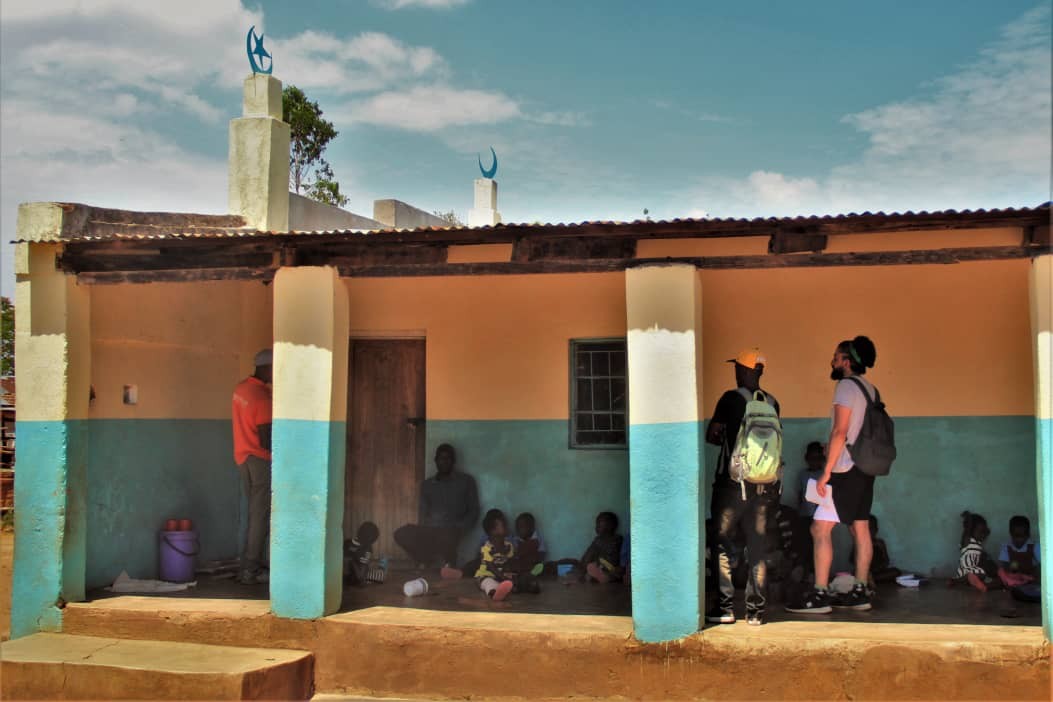My first Impressions of Malawi
My first Impressions of Malawi
We have been one month and one week here in Malawi. In the beginning it was hard to face this new reality. Before we arrived we knew many things about Africa, about Malawi, but it's different when you are face to face, when you live especially if you came from England, in a very different place... In England the service and in general the things work almost always, you can find all that you need and many things that you don't need. A very comfortable place.
Meeting another reality
Here it's all different - the streets, the people, the shops, the stores (except some places), the transport, the food, etc.
Maybe there are things that are very similar, but most of the things are not.
For me, in the beginning I was afraid. Afraid of the mosquitoes, to the transmission of malaria or any illness, afraid to drink water and of the the infections, afraid of an accident. But later I realised how the situation really is...and nothing is very extreme. It's very easy to be afraid of something when you don't know it.
A different life
I think, one difference between here and England or Chile is the comfort. In the transport for example, they put the maximum of people that they can put. This is to get more money, because the price is cheap, so they earn something from a big amount of people. In general it is like this.
The poverty is big, the needs are many. But the joy is also big and a lot.
This is very curious but in general they smile a lot, more than the Chilean and much more than the English people.
It's impossible to say the Malawians are more happy than the Chileans, but in general they express a lot their emotions and you can see people are very friendly and joyful, so, with this you forget all the problems they have and when you talk and ask they say something about the bad reality of the economy or the jobs. For them the problem is there but nothing forbids to still be laughing.
Few people, almost nobody ask for money. But in general, we know that everyone think we are rich, so we have to explain we are from South America jajaja.
"Azungu" this is our new name. Especially the children call us azungu (white person). For us it feels strange because creates distance between them and us, they are saying you are different, you are not black. You are from another place. Azungus can come to steal or to help or to travel, but it is a fact - we are white.
We also come from a colonised country....
For us, me and Javier (my partner in the project), it's strange because we are from Latin America, we don't considerate us as white, but here they don't know if you are from Europe or Latin America,.With the time the only one who understand the difference is Richard, our project leader. We have commented to Richard how it is in Chile, how is the reality of our country, the difference between our continent and Europe, and he knows that we are not millionaires. Also here we understand our position as a colonised people - maybe our countries are different but Chile and Malawi share some very important but at the same time very sad points:
- Both countries had a dictatorship in the second part of the XX century.
- We are some of the most unequal countries in the world.
- We were colonised by a European country, and they are still controlling part of the economy and the religion.
- There is a lot of corruption in the country
But at the same time we found some differences. In the end I realised that many things for us are normal, especially such as the access to things or service, internet, cellphones, to buy gifts, to travel by plane, to know other countries, go for holiday to a nice place, go to the beach, to go to eat out, or just to eat different dishes everyday. But then things like health or education or transport are also different. In our country if you don't go to the university this is little bit strange... but here it is the contrary.
The needs are many.
There is extreme poverty and this is a new reality we have to face..... Most of the time I think I'm very lucky to be born in the place where I was.
How do you live on less than one dollar a day?
The average salary here is 25000 Malawian Kwashas, this is little bit more that one dollar per day.
But there are many who live with less than one dollar.
How you live with less than one dollar?
In CICD we read about it - but to see the reality is different.
At first, they are very creative to manage this, they try to save every coin. Here in the villages, in the country side, they don't pay for water and electricity. They pay the mobile data sometimes. Many houses don't have electricity, water is from the wells, to cook they use coal or firewood, sometimes they buy it or sometimes they collect. They are very careful with the economy. The moto-taxi turns off the motor when go down the hill.
The project gives us 116.000 Malawian Kwashas per month, it is a lot of money in comparison with the majority of people here.
But people develop a lot of thing from this need. In general they use the body more - they have to do more exercise than anyone. For example to get somewhere, sometime they have to walk a lot, if they want to cut wood, they don't have a machine, to plant the seeds it is by hand, etc. With all this exercise their body is more healthy.
Trying to understand a different lifestyle
Also the building system is eco friendly: they use their own bricks, they use just water and sand for make them. In general, they use less things that influence the ecosystem. They throw the garbage in the roads.... but in comparison with us their garbage is nothing.
About the happiness is difficult to talk, but people don't seem less happy than in a "developed country", at the contrary. Maybe their worries are a lot and this is stressing for the people, but they work to solve their problems.
The concept of "lazy" I haven't seen it here. In the contrary the people here in the community work a lot, the students have energy and many study hours.
People have another rhythm of the life, they walk slowly, because nothing is late, they are on time. Sometime they are late, because they come from far away, walking kilometres under the sun, not in cars or bikes, like us. Their time is calm, is slow. They don't have this concept of "produce" all the time like me.
I think all the time: I can not loose the time, I have to use every minute to do something productive, but here is different. I'm learning a lot about that, to breathe, and to look around, to enjoy the nature.
They are calming my rhythm of the life and it is hard but I'm happy. Sometime I stress, but I'm learning.
Religion is very important.
The music is beautiful and happy most of the time.
The amazing nature....
The nature is amazing, uuuuhhhhh, is the most nice thing here. With the rain the landscape turns green, and the whether change constantly, in the morning there are a hot sun, 30 degrees, and in the afternoons there are storms. The clouds are beautiful, specially in the sunset, different colours, harmonious, quiet, and in the horizons black clouds are doing a party, clouds, full of water and good season, good future and deep voices reminding us of the respect the sky deserves.
The plantations turn green faster that our expectations.
The maize growing very fast changes the face of the red land, close to the houses, red houses, houses of songs, of children, grandparents, mothers, fathers together. Feet running faster than leaves in the wind, feet going slow full of experiences. Feet touching the land, in contact, close to the earth, closer than me.
There, in the grooves, you can see one mother under the sun, weeding. Close to her, another woman shouting to someone behind the little river, who I can not see.
Fields in the hills modelling the horizons, different colours, different directions, different shapes, sounds of insects everywhere, new insects for me.
The sun is setting slowly, it's time for rest and quiet.
It's time for the grasshopper songs, for the frogs song, the cockroach songs?
Songs everywhere.
We walk close to the river
What! There are lights in the grass.
There are lights on our way to the house.
Lights everywhere
Stars on the ground
Lighting boxes close to our feet.
No electricity in the school
Big stars in the sky.
Beautiful nature!
And the human being is part of her...
The mother of everything.
Our Project Experience so far
My experience with the project is good.
To work with Richard (Our local partner) is very productive. He knows everything about the pre-schools, what they need, the locations, the roads, the people and the language. He lives here so he knows how is the life, the daily life. He explains to us with a lot of patience, if we don't understand something, for example. He's very good partner, facilitating the job.
With my other partner we have different concept of the work but we are improving our work system, talking when something is not good for each other. Also he is from Chile, so our language is the same, we can share many ideas and thoughts easily about our experience.
But in general we are happy because at the moment we feel that we are advancing, we have organised different projects, specially about the food in the preschools. We made a video for fundraising and it is working.
We could do many things and we feel that we have started in a good way. With Richard we can work very fast. He has the communication with everybody, so if we want to do something he can call to anyone and do it. Also we work together with Mr. Margaretha, who works with the local government in the communities, so he also is a very good support to carry out the projects.
In the school, DAPP always have a good relation with us, they advice us, and facilitate the information or the budget.
We have a good team in Malawi!
We can see the work from the other volunteers, and we continue with this, but also to work with our skills and ideas.
The only problems are the bicycles, because we have to fix them almost everyday, we say "the big challenge in Malawi".
Sometime, we have to walk a lot under the sun or the rain, and this is very nice, because is a good challenge. Sometimes is very very hot but we drink water or we eat mangos. Uh la la the mangos!
My body is training for this challenges, sometimes I'm very tired so I have to rest, and this is a learning also. The rest is important.
I could share time with the students, before they leave. We made a video clip, it was so funny. They created a song about Amalika, they are very proud of the school, so we thought to finish the process in the school, is good to end with a videoclip. We were very happy, and for me it is easier to share with the people, by the entertainment work, it's my way to share.
We started to make a documentary, we made some interviews to the student about the education.
Also we sang Chilean songs with Javier in the Christmas Party, was very nice. To share music is always a good moment.
In resume.....I've lived many beautiful moment, with the people, with the nature and with me. There are more time for us and this is very important. Because in my city you almost don't have free time. I'm very happy and I love to work in the communities, to walk everyday to different places, to see beautiful landscapes, listen the music, to be in the nature.
Of course there are difficult moment but in general the experience is amazing.
I will try to learn more Chichewa, I think this is my challenge at the moment.
Things to improve: Patience, Chichewa, physical exercises.
Thank you.
Hugs and greetings!
Comments 3
Hello Focho! Greetings from CICD, my name is Marie. Thank you for your interest here - I will pass on your details to Alvaro, because right now he is in Malawi so cannot talk with you in Chile. Unfortunately you could not join this same programme here with us in England, because of the immigration rules...but maybe you can in one of our sister schools in Denmark or Norway. Take a look at this website and contact them: https://take10volunteer.org/ and good luck with your volunteering in Chile.




